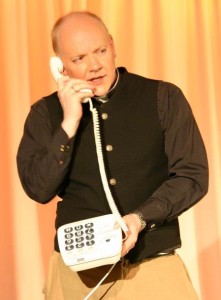The Norman tower of the church of St Peter and St Paul in West Mersea is very unusual – it is an example of Norman architecture in England that predates the Norman conquest of 1066. This is because the patronage of the church here had been gifted to the monastic community in Rouen in Northern France, and that community invested in the building of the tower – most probably in order to aid the boats that were travelling between here and France to navigate their way in the Estuary through lighting a signal fire at the top.
The view from the top of the tower is wonderful. It provides a real overview of the whole town, alongside the expected views of the Estuary. It is a remarkably peaceful place from which to watch the world. I like to think of the people lighting their fires in previous centuries in order to provide both practical guidance and a symbol of safe harbour to the sailors.
There was a tower here before the Normans. If you look at the side of the tower you will see tiles embedded in the structure, most clearly on the corners. These were taken from the Roman ruins on this site – the ruins of, it is believed, the summer residence of the Roman governor from when Colchester was the Roman capital of Britain, Camulodunum. Beneath the churchyard at the East end of the church lies a roman mosaic, now covered up. I have no doubt that there are many hidden mysteries in the depths of the earth surrounding the church.
This ancient site has had layers and layers of history built upon it. I wonder what the core identity of the site might be, or whether, like an onion, if we continue to peel back the layers we find that there is nothing left in the centre. A hill top site with commanding views over a natural harbour, where there is an abundant source of protein ready to hand. People have lived and thrived here for a very long time.
An alternative image. It is said that to be a samurai in ancient Japan, the samurai had to make their own sword – that only by making their own sword could there be an effective union between the weapon and the wielder. In order to make the sword, the samurai had to melt and reforge and hammer the steel hundreds and hundreds of times. Nowadays a metallurgist might say that this allows all the molecules of the steel to align in one direction, enabling a much greater strength and sharpness for the blade – but that, whilst true, doesn’t seem as interesting to me.
For really, what the samurai is working on is not the sword but their own soul.
Within St Peter and St Paul’s there is melting and reforging and hammering going on, as it has been going on for hundreds of times a year, for hundreds and hundreds of years. We follow the ancient rite given to us by our master, by which we are ourselves remade into his instrument, his blade. This is called liturgy, which might best be understood as simply meaning ‘the work of the people’ – work, in communion with God, by which our souls are forged and reforged for the master’s work.
The oldest part of the existing church is a segment of the north wall, near the priest’s door. This is Anglo-Saxon, contemporary with the church in Bradwell where St Cedd arrived in Essex some 1400 years ago. Since that time there has been a heartbeat of work and praise centred on this site, day in, day out, week in, week out, year in, year out, sometimes strong, sometimes weak but always consistent in its central message.
Why did the Roman governor want to come to Mersea? There must have been something here to attract him – were the oysters enough? And why did St Sebbi, the King of Essex in the seventh century, build the Strood to enable easier access? He was known to be exceptionally devout, and the building of the Strood was a huge undertaking that must have been quite a strain upon his treasury – the equivalent of building the M25 in our day. There is something about Mersea, about this site on Mersea in particular, which draws people in. For those with awareness it is one of the thin places in this land, a marginal place, where the light gets in.
I daydream about Camelot. What was Colchester called in Roman times? I trust the links of language, which often preserve insights lost to our more conscious awareness. A castle on a hill, a seat of government, the front line against invasions from overseas – lots of crooked rivers that might be site of Camlann. There is no evidence for this of course – the story of Arthur is almost entirely legend.
Yet if that daydream has merit – where is Avalon? Where is the island in the pool, the MeresIgge, to which Arthur retired hurt, where he sought sustenance and ministry from those who might be expected to have expertise, such as a monastic community? Where a sword was found, and then lost, and might be found again.
And did those feet, in ancient times…?
England slumbers, as beneath a blanket of snow. Yet it seems to me that we are waking up, as if from a long and disturbed sleep, filled with dreams of machines and factories and the dark satanic mills of higher learning. The soul has been forged and honed to an edge of sharpness, ready to separate joints and marrow. Is there one worthy to wield it?
(An article for the Mersea Society magazine)






You must be logged in to post a comment.